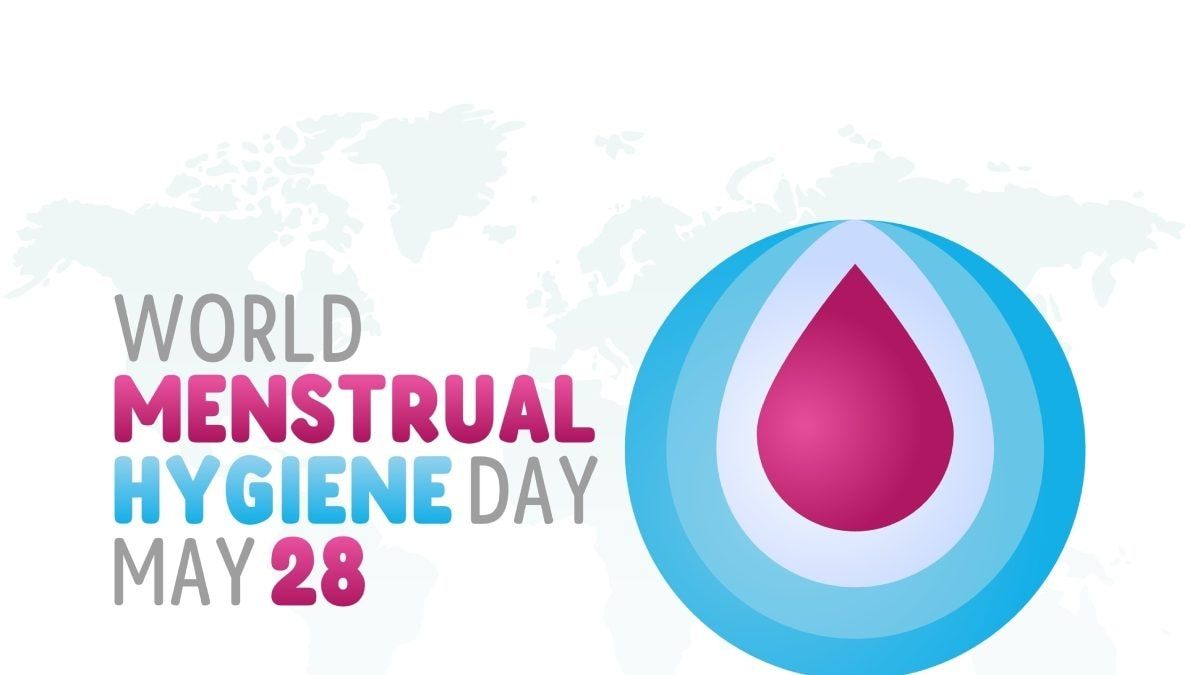World Menstrual Hygiene Day is an opportunity to learn more about menstrual health and hygiene. (Image: Shutterstock)
World Menstrual Hygiene Day 2024: Menstrual health and hygiene (MHH) are essential for the well-being and empowerment of women and adolescent girls.
Menarche, or the onset of menstruation, is an important biological milestone in a woman's life as it marks the beginning of the reproductive phase of her life. Unfortunately, due to lack of knowledge about menstruation preparation and management or due to shyness and embarrassment, the situation worsens for girls. Menstruation is a natural process, but it remains taboo in Indian society as it is considered impure and dirty.
Menstrual Health and Hygiene (MHH) are essential for the well-being and empowerment of women and adolescent girls.
Possible health risks due to poor menstrual hygiene:
- Reproductive tract infections such as foul-smelling vaginal discharge, vaginitis.
- Upper reproductive tract infections have the potential to cause infertility.
- Skin irritation and rashes in the perineal area due to infrequent changes of napkins or the material used.
- Toxic shock syndrome especially with the use of tampons.
- Urinary tract infections.
Do's and don'ts to maintain menstrual health
To do
- Learn about the different menstrual products to make an informed decision about which one works best for you.
- Use menstrual products that are safe, affordable, accessible and environmentally friendly in the long term. Switch to menstrual cups. Remember it's “less trash, less money, less recklessness.” It's good for the planet and for yourself.
- Change menstrual pads as needed. Menstrual cups can be used for up to 10-12 hours. All other disposable or reusable pads or tampons should be changed every 6 hours.
- Stay well hydrated and eat proper nutrition.
- It is not necessary to restrict physical activity. Continue routine workouts as individually tolerated.
- Shower daily and wash the perineal area every time you go to the bathroom.
- Wear light, breathable clothing, preferably cotton.
- Properly dispose of used disposable menstrual products: wrap them in toilet paper, a tissue, or other material, then throw them in the trash.
- When you go to the bathroom, wipe from the front of your body to the back, not the other way around. Use only water to rinse your vulva.
- Track and monitor your period. Your menstrual cycle is a valuable marker for your overall health.
what should not be done
- Avoid using scented or unscented perineal hygiene products or washes unless recommended by your gynecologist.
- Avoid prolonged use of sanitary napkins or towels as it may lead to infections.
- Avoid synthetic clothing.
- Do not flush menstrual products down the toilet.
- Don't fall prey to various myths and misinformation.
A woman menstruates for approximately 40 years in her life. It's time for women to start talking about sustainable menstruation and reducing their menstrual footprint on the world by using reusable products.












